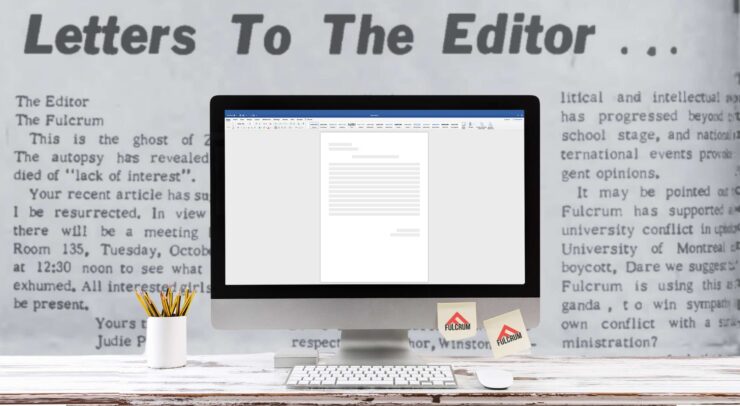Understanding the origins of Zionism as a settler-colonial project
Author’s note: This piece is published under a pen name and is intended to operate as the first installment of a four-part series. The author has sourced much of their historical information from “The Hundred Years’ War on Palestine a History of Settler Colonialism and Resistance, 1917-2017,” a book by American Historian Rashid Khalidi.
History does not go to hide, it is deftly hidden. Somewhere along the wars and genocides, heirlooms are stolen, families lose their diaries, a people will lose their words. Where the victors have so much to show and so much control — their narratives are the new history. The ones who have lost forfeit their existence to justify the means of the victor. The tale of the civilized man against the savage brute, the well-mannered nation against the aggressive tribe. But if careful attention is paid, there is another story: the oppressor against the oppressed.
It is not common knowledge that despite still having been under Ottoman Rule until 1917 and the many sufferings that came from its oppression, during this time in Palestine there existed the Arab-Jewish identity. A flourishing and established identity where there was no clear distinction between the Arabic man nor the Jewish man, they were simply and intricately both. In the small city of Jerusalem, there was continuous and casual interaction with Arab Muslims, Christians, and Jews, which can be difficult to imagine considering the vicious rhetoric that has pitted these peoples against one another. The erasure of this harmonious history further propels people to believe that these groups were born to hate, born to be aggressive, and born to inspire destruction within the lives of each other.
People are intimidated by the history of the Arab world because their education from Western news and eurocentric history books forms their perception so that there seems to be no linearity nor any origin to the calamity. Instead, the dominant understanding becomes that since their conception, Arabs have been stuck in a loop of surviving one terrible conflict after another. So in 2023, where Palestinians are fighting for their last breath in their brutal genocide, having knowledge and learning their history is a powerful method of protest against the vitriol and incessant misinformation; to validate and perpetuate the existence of an oppressed people is an act of resisting the oppressor.
The beginning of this history lies broadly in 19th-century Europe, where like much of history preceding it, the Jewish people were facing vicious oppression in a Christian-dominated Europe. With a grave and tragic history of discrimination, the Jews have been expelled from various states (England, Spain, Germany), massacred for their existence, and faced (as they still do) many systemic oppressions in the countries in which they were allowed to inhabit.
Where generations were exhausted and traumatized it only made sense for them to seek statehood. Where ideas were in discussion as early as the 1840s, the Zionist movement was officially established in 1897, founded by a Viennese journalist Theodore Herzl. Herzl was concise with his motives; the project’s focus was to reclaim the land of Israel and establish sovereignty, to provide a safe land for the Jewish people. But of course, the aforementioned land to reclaim is Palestine, and there was little consideration in the Zionist movement for the livelihood of the Indigenous population.
His words had sent ripples across the Jewish and Western populations alike. And it was then that the Arab-Jew identity solemnly began the slow yet steady trajectory towards its extinction. As the Zionist project propagated to larger masses, Palestinian nationalism simultaneously rose almost as a response. Now, the same Arab-Jew man had either become a Palestinian nationalist or a Jewish Zionist.
During World War 1, Britain successfully conquered the Ottoman Empire and administered Palestine under the British Mandate; Palestine, which had been trying to escape one colonial rule had slipped under another. Although this time the state’s population was at its weakest after barely serving a famine, losing thousands to the war, and facing the economic decline that came from it.
Britain swiftly tasked itself to establish a government for Palestine and during their rule, their government had published the infamous Balfour Declaration. Foreign Affairs Minister Arthur James Balfour stated on Nov. 2 1917 that the British government is in support of “the establishment in Palestine of a national home for the Jewish people, and will use their best endeavors to facilitate the achievement of this object.” A shock to the Arab world, this initiated the West’s support of the Zionist project which had since then enabled the genocide of millions of Palestinians.
When the Treaty of Versailles and the Covenant of the League of Nations were signed on June 28, 1919, Article 22 made it imperative that the nations left behind by the defeat of the Turkish Empire could not independently recover from the war. To resolve this problem, these communities should be assigned to “advanced nations” that could guide them to modernity and prosperity. But President Woodrow Wilson of the United States of America added that the communities should be able to choose the country that oversees them.
In 1918-19, President Wilson arranged an international commission, the King-Crane Commission, an international committee consisting of the United States, Italy, France, and Britain; the purpose was to investigate the views of the Arabic people on how they would have preferred their governments be structured and who would they prefer to control—I apologize, guide— their country to prosperity. These opinions would be collected by speaking to both Christian and Muslim majority populations, and the minority Jewish population.
The commission was considered a failure because the latter three states pulled their participation, but the United States continued nonetheless and reported their conclusions. They found unanimously that the Arab population (including the Jewish minority) did not want any aid, supervision, or external interference from other states, additionally establishing that over 80 per cent advocated for a united Palestine and Syria. Naturally, none of the findings of the report were considered.
In 1920, Britain and the World Zionist Organization’s wish for control over Palestine finally came true at the signing of the Treaty of Sèvres, where almost immediately they worked to see Balfour’s Declaration come to fruition.
The motivations for Britain’s patronage of the Zionist movement are still to be disputed, some posit that it could be the anti-semetic motivation to decrease the population of Jews within their own country. Others have concluded that it was to inspire pro-Britain rhetoric amongst Jews to take advantage of Palestine’s geopolitical status vis-a-vis its proximity to the growing construction of the Suez Canal in Egypt. This would advantage Britain by establishing a “vital communication route to British colonial possessions in India.” Such is common practice in colonial history where if marginalized groups cannot be assimilated, they will be manipulated. But alas, there may never be a conclusion.
This era in Palestinian-Israeli history reveals the motivations for the then-nascent Zionist movement. But more importantly highlights the West’s mal-intentioned imposition upon Arab-Jewish life. To survive, lines had to be drawn because suddenly it became that the existence of one threatens the existence of the other.
Furthermore, it is uncovered that the assault on the Palestinians had run far before Hamas attacked Israel on October 7, 2023. It is a colonial project 100 years in the making and the sides are not Jews against Muslims, or Israel against Hamas, but indeed an attack on Palestinian liberation by a colonial project supported and created by the West. It is none other but a colonial assault by a ‘civilized’ oppressor who seeks to cleanse the world of the ‘savages’ that are the oppressed.








